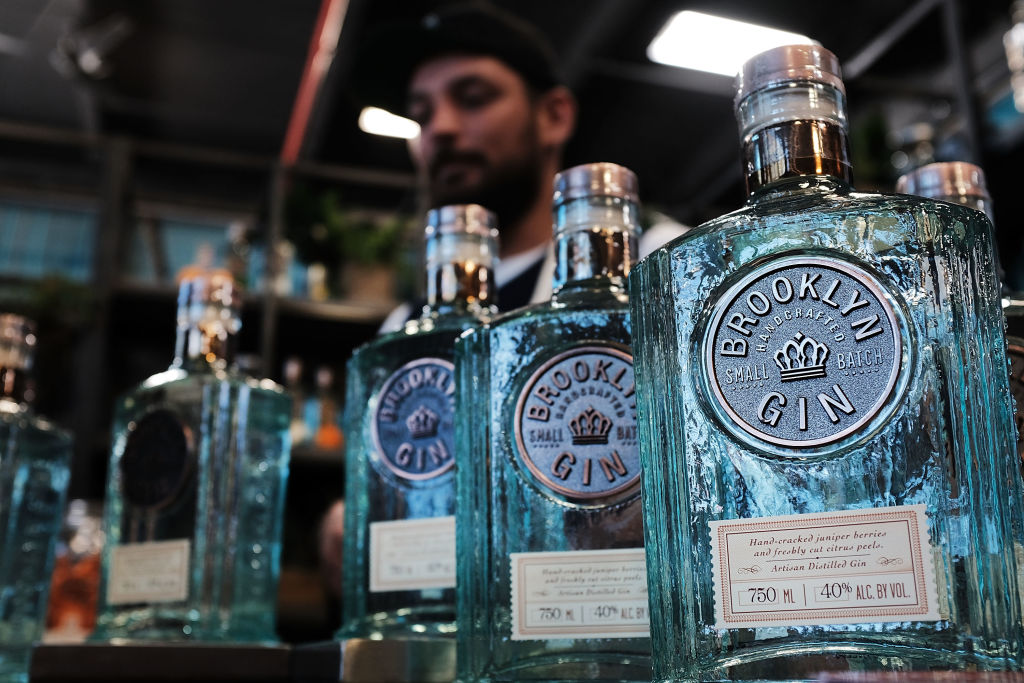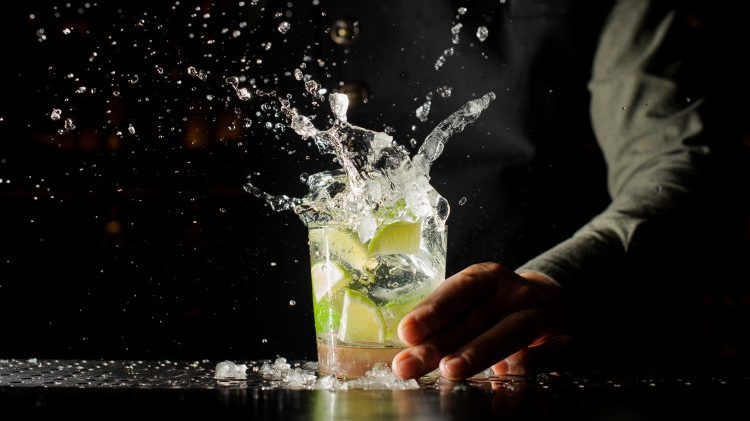Photo: Maxim Fesenko (Getty Images)
Many people decide to use January as a month to “take it easy” on alcohol and only enjoy a drink or two per weekend. Others opt for having a dry January. This means that in an effort to detox from all of the holiday revelry, these brave souls decide to completely stay away from beer, wine, liquor, and maybe even mouthwash for the whole month. If they’re anything like us, once the calendar turns to February, they’re really going to want a drink. That’s why for their sake and yours, the time is right to stock up your own home bar.
Plus, having a home bar will guarantee your friends and family will have a reason to stop by your house or apartment. Also, stocking up now will lead to fewer bar tabs in the future. Why would you trudge out into the snow and sleet (uphill both ways) to your local pub to spend $15 dollars on a bacon-washed Manhattan when you can make your own at home?
Not everyone has a degree in mixology and that’s why we need a little help figuring out what to buy. You could just go into your local liquor store and buy one of everything, but most of those bottles will just end up collecting more dust than your Pog collection. The best way to prepare for any type of investment (and a home bar can definitely be an investment) is to get tips from experts. That’s why we asked two of your favorite bartenders to tell you what you need to create a great home bar. From jiggers to gin, they’ve got you covered.
Bartender approved: Cocktail Predictions For 2019
DIY: Design the Home Bar of Your Drunken Dreams
Follow Mandatory on Facebook, Twitter, and Instagram.
Home Bartenders
-
Tool Time

If you’ve ever watched a bartender make a drink, you’re aware they have many tools at their disposal. Some are more important than others. “A good Boston shaker, a glass mixer, a jigger, strainer, bar spoon, and y-peeler,” are must-have tools for home bartenders according to Shawn Chen, beverage director at RedFarm in New York City.
Brian Miller, beverage director at The Polynesian in New York City also believes home bartenders need a nice set of cocktail tins. “It all starts with the basics,” he says.
Photo: Anjelika Gretskaia (Getty Images)
-
Must-Have Ingredients

Chen believes all home bartenders need citrus and herbs (mint, rosemary, and basil) on hand at all times. Miller adds sugar, water, and various spices to the list of must-haves. “You gotta make syrups,” he says.
Photo: Alexandra Grablewski (Getty Images)
-
Rum is King

In Miller's opinion, a home bar needs a lot of rum. “Start with anything by Appleton, El Dorado or Hamilton,” he says. “They’re all delicious and affordable. And if you don’t waste any money on vodka, you’ll have even more room at your home bar for more delicious rum.”
Chen prefers Naked Turtle because of its price point and how well it works in cocktails. “It's not going to overpower other flavors,” he says.
Photo: Dimitrios Kambouris (Getty Images)
-
Tequila Versus Mezcal

Every home bar needs a bottle of mezcal or tequila (or better yet, both). “In my opinion, mezcal is like the grown-up version of tequila; it is more subtle to drink neat and can be easily served in a mixed drink,” says Chen.
For a blanco, Miller likes Siembre Valles. He adds, “El Tesoro reposado is probably my favorite tequila in general. They’re delicious and not that pricey.”
Photo: William Joseph Boch (Getty Images)
-
Whiskey is a Must-Have

For novice home bartenders, whiskey selection can seem daunting. There are many different types of whiskeys out there – scotch bourbon, rye, Irish, Canadian, and Japanese. Miller is a bourbon and rye man. “I like Buffalo Trace bourbon and Old Overholt 100 proof rye,” he says. “They are workhorse whiskies that are good for cocktails or just drinking straight. Then you can work your way up to the ‘sipping’ spirits.”
Chen says to skip the bourbon and head straight for Japanese whiskies. “They can be served both neat and mixed in cocktails,” he says. “I personally like Hibiki Harmony for its price point and easy drinking quality.”
Photo: Scott Olson (Getty Images)
-
Vodka is Optional

Both bartenders agree that when stocking a home bar, you really don’t need to break the bank. “I think any mid-shelf vodka,” says Chen. “I personally like Tito’s because it is a neutral vodka that is good for mixing and infusing.”
Miller says not to even worry about the vodka when selecting spirits for your home bar. “That’s a trick question, right?” he says “Need and vodka? Seems like a contradiction in terms.”
Photo: Rachel Murray (Getty Images)
-
Don't Forget the Gin

Gin isn’t for everyone. That’s because the herbal flavors can be a little too much for some drinkers. “Too much juniper can be off-putting for people who are not big fans of gin,” says Chen. “Brooklyn gin is one of my favorites at the moment, because the juniper is not as pronounced as in some other gins.” He adds, “Brooklyn accentuates other botanicals and herbs used in the distillation, making it easier to enjoy.”
Photo: Spencer Platt (Getty Images)
-
Odds and Ends

“Every home bartender should have a bottle of dry and sweet vermouth along with some bitters because these are the basic ingredients for concocting classic cocktails such as the martini and the old fashioned,” says Chen.
Miller, a fan of the tiki-style cocktails, believes an allspice dram is the most important odds-and-ends spirit. “How else are you going to make Don’s Spices #2?”
Photo: Maxim Grigoryev (Getty Images)
-
Experiment and Have Fun

It’s important that any home bartender has fun and isn’t afraid to make mistakes along the way. “Don’t be afraid to experiment with different flavors and textures,” says Chen. Don’t be afraid to mix and match. “Everything starts with an experience,” he says. “Also make sure to keep vermouth in the fridge after opening to prolong its shelf life, otherwise it degrades fairly quickly.”
Miller believes that while home bartenders should enjoy themselves and experiment, they should also learn to make high-quality cocktails. Otherwise, what’s the point of creating your own home bar, right? “Be exact in everything you do,” he says.
Photo: Jena Cumbo (Getty Images)






